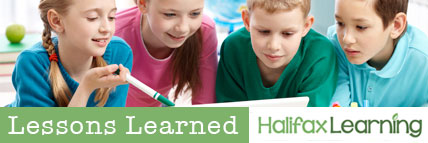
Are you tired of trying to navigate convoluted and impersonal language on your child’s report card? You’re not alone.
Last spring, parents, students, teachers, and administrators were invited to fill out questionnaires regarding their concerns and suggestions for the current report card system.
As the result of almost 6,000 responses (89% of which were parents and teachers), the Department of Education and Early Childhood Development penned the Provincial Report Card Review Results Overview and Action Plan Summary. This is what Nova Scotians asked for:
- Clear, jargon-free language
- Individualized comments based on students’ strengths, challenges, and what students can do to improve
- Suggestions for parents to support at-home learning
When reading the report cards, we want you to be prepared. Here’s a quick summary of some of the changes.
Specialist teachers will now have a comment section in the Learner Profile section for grades P-8. This means physical education and music teachers will be able to contribute individualized commentary, providing parents with specific information about their child’s performance in two sometimes-underappreciated classes.
A comment section will also be added to the Learner Profile section for students in grades 7-12. Just 52% of teacher respondents in this grade range felt they could effectively communicate student development. Now teachers who interact with students on a daily basis will have the opportunity to provide personalized insight.
Report cards for students in grades 7 and 8 will now include percentage grades. Over half (56%) of parents and teachers felt grade descriptors were not useful in communicating student progress or supporting at-home learning. Teachers will now provide percentage grades in an effort to clarify performance measures.
The first Primary report card will include a Learner Profile, Learner Profile commentary, and attendance sections. It will include English/French Language Arts and Mathematics comments sections. Second and third report cards will include all subject areas.
By adding these changes to the already more personalized comment sections implemented in last June’s report cards, the Department of Education has taken another step towards ensuring report cards are easier to understand and provide more direction for parents trying to support learning at home.
Also of interest, specific recommendations for improving communication tools between teachers, principals, and parents are currently being implemented. These include further communication opportunities (parent-teacher interviews, curriculum nights etc.) and greater use of online tools to promote more consistent interaction between parents and teachers. The upshot of this? More human-to-human interaction! Language on report cards may someday be jargon-free, but until then increased opportunities for parents to ask questions of teachers and school administrators will help to minimize confusion and maximize the support parents can offer their children at home.
And the best news is that these changes are not final. The Report Card Review Committee will meet after this round of report cards to update progress and discuss further improvements. Over the next year, the department will also develop an assessment, evaluation, and reporting policy to ensure report cards evolve to provide the right information regarding a student’s performance.
The Minister’s Review Panel on Education laid out seven key areas that need to be addressed to improve Nova Scotia’s education system. This is one sign that the government is not only serious about implementing education reform, but also about using public input as a key component of their reform strategy.
Written by Max Gordon from Halifax Learning. With various locations in the city, Halifax Learning Centre offers many different programs to suit everybody’s needs – it’s more than just tutoring! For more information on programs like SpellRead, Momentum Math, French and more visit their website



